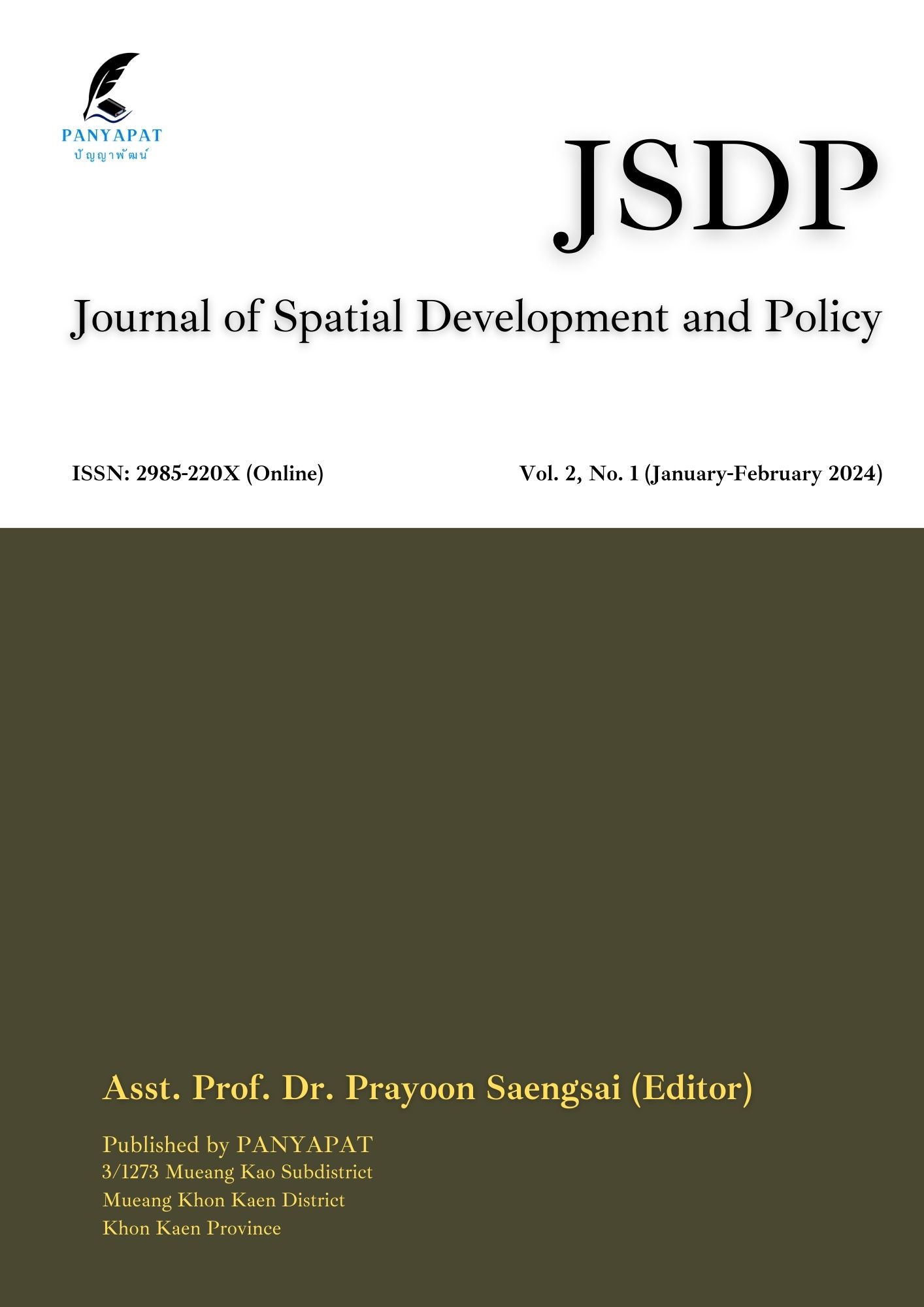The Guideline for Development Performance Appraisal System of Production Staff of Exoticfood Thailand, PCL
Main Article Content
Abstract
The objectives of this research are as follows: (1) To study the current situation and related problems concerning the performance evaluation of production department employees at Exotic Foods Company Limited (Public), (2) to develop a performance evaluation system for production department employees at Exotic Foods Company Limited (Public), and (3) to assess the quality of the developed performance evaluation system for employees. The sample group used for data collection consists of production department employees at Exotic Foods Company Limited (Public), with in-depth interviews conducted with 8 individuals and a questionnaire utilized as a data collection tool with a sample size of 30 individuals. The statistical analyses employed for data interpretation include mean and standard deviation. The research findings indicate that the current performance evaluation of production department employees at Exotic Foods Company Limited (Public) faces several problems. These include the lack of a systematic evaluation process, absence of standardized evaluation criteria, and mismatch between evaluation criteria and job characteristics. There are four identified root causes: 1) Policy, 2) Evaluation format, 3) Evaluation methods, and 4) Organizational personnel lacking knowledge and understanding of assessment skills. In the initial development phase of the performance evaluation system, efforts were made to create a new evaluation system using Balanced Scorecard (BSC) methodology, along with developing clear and appropriate evaluation criteria. Subsequently, initiatives were taken to build knowledge and skills in evaluation among relevant personnel. Management provided support and commitment throughout the evaluation process, with follow-up conducted after implementing the Balanced Scorecard (BSC) evaluation.
Article Details

This work is licensed under a Creative Commons Attribution-NonCommercial-NoDerivatives 4.0 International License.
References
ปิยะรัตน์ อนงค์ไชย. (2552). ผลกระทบของประสิทธิภาพการวางแผนงบประมาณของธุรกิจ SMEs ในเขตภาคตะวันออกเฉียงเหนือของประเทศไทย. (บัญชีมหาบัณฑิต, มหาวิทยาลัยมหาสารคาม).
Akmaeva, R. I., Mineva, O. K., & Lunev, A. P. (2015). Peculiarities of staff performance appraisal with the use of balanced scorecard in the area of public and corporate management. Asian social science, 11(20), 160-164.
Almohtaseb, A. A., Almahameed, M. A., Tobeery, D. A. S., & Shaheen, H. K. (2017). The impact of performance management system on employee performance: The moderating role of balance scorecard usage. International Review of Management and Business Research, 6(2), 681-691.
Balashova, N. V., & Nosyreva, I. G. (2022). Personnel Evaluation: Organizational, Methodological and Practical Aspects. In I. A. Savchenko, (Eds.). European Proceedings of Social and Behavioral Sciences (pp. 967-977). London: The registered company.
Banayee, M. R., Faiq, Z., Mohammadi, E. M., & Faizi, F. (2022). Evaluation of the Effectiveness of the Performance Management System in the Ministry of Higher Education. Sprin Journal of Arts, Humanities and Social Sciences, 1(09), 01-11.
Bertalanffy, V. L. (1968). General System Theory. Newyork: Image Braziller.
Dessler, G., (2013). Fundamentals of human resource management. London: Pearson.
Gelens, J., Hofmans, J., Dries, N., & Pepermans, R. (2014). Talent management and organisational justice: Employee reactions to high potential identification. Human Resource Management Journal, 24(2), 159–175.
Lamesawan, P., Silpcharu, T., & Wattanakomol, S. (2023). Guidelines for evaluating the fair performance of personnel in the manufacturing and service business sector. International Journal of Professional Business Review, 8(6), e01714-e01714.
Mdhlalose, D. (2023). The Systematic Review of Effective Performance Management Systems in Organizations. Jurnal Aplikasi Manajemen, 21(2), 319-330.
Oh, S. S., & Lewis, G. B. (2009). Can performance appraisal systems inspire intrinsically motivated employees?. Review of Public Personnel Administration, 29(2), 158-167.
Prasad, L., Nagar, N., Rajsekar, D., Uppal, A. G., Mishra, P., Gupta, S. K., ... & Kornieva, N. (2022). Evaluation of the Exercise of the Performance Assessment System. In Alareeni, B., Hamdan, A., Khamis, R., & El Khoury, R. (Eds.). Digitalisation: Opportunities and Challenges for Business (pp. 547-559). Cham: Springer International Publishing.
Smith, A. W. (1982). Management system: analysis and applications. New York: Dryden Press.
Tarigan, Z. J. H., Sutapa, I. N., & Mochtar, J. (2017). A comparison of academic and non-Academic staffs' balanced score card based e-performance appraisal: A case study. In M. Maode, & L. Cheolil, (Eds.) Proceedings of the 1st International Conference on Education and Multimedia Technology (pp. 66-69) New York: Association for Computing Machinery.
Yohannes, T. (2017). An Assessment of Employees’ performance Appraisal Practice: The Case of Mugher Cement Factory. Doctoral dissertation, Faculty of Business, St.Mary's University.
Zdenko, S., Katarína, S., & Dagmar, C. (2019). Potential of Human Resources as Key Factor of Success of Innovation in Organisations. In D. Cagáňová, M. Balog, L. Knapčíková, J. Soviar, & S. Mezarcıöz, (Eds.). Smart Technology Trends in Industrial and Business Management (pp. 229-247). Cham: Springer International Publishing.

